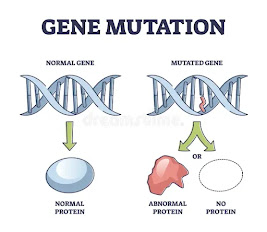Within our bodies, we have specialized genes to help us break down the food we eat, to convert it into energy. The sucrase-isomaltase (SI) gene is specialized to break down two sugars, sucrose (table sugar/fruit sugar) and maltose (sugar found in grains). Unfortunately, mutations in this gene caused a rare autosomal recessive genetic disorder called congenital sucrase-isomaltase deficiency, where those affected cannot properly digest sucrose and maltose. In fact, congenital sucrase-isomaltase deficiencies are found in 1 in 5,000 people of European descent; however, in the populations of Greenland, Alaska, and Canada, the prevalence of a SI deficiency can be found in 1 in every 20 people.
New research, from an international group of scientists, has just found that this disorder is linked to the cravings and diets of those affected. Notably, in a large study with mice, scientists found that mice without the SI gene did not show cravings or preferences to sweet foods containing dietary sucrose. Dr. Peter Aldiss, a group leader of this study even states, "Now, our study suggests that genetic variation in our ability to digest dietary sucrose may impact not only how much sucrose we eat, but how much we like sugary foods" (Aldiss). These findings were complimented by studies of SI deficient humans, who also did not enjoy sucrose-rich foods as much as an unaffected population.
These findings are nothing short of remarkable, and they open the door to a multitude of genetic research opportunities. For example, Aldiss notes that this may lead to studies targeting the SI gene to reduce overall intake of sucrose in individuals worldwide (which would benefit digestive and metabolic health). While we cannot ethically selectively breed for this trait, our modernized technology of genetic modification may be able to artificially alter the function of SI genes. However, SI deficiencies have been associated with irritable bowel syndrome, so there may be some drawbacks to targeting this gene in large populations. If I were to be researching this, I would attempt to look into the hormonal mechanisms (occurring as a response of SI deficiency) that lead to a reduced sugar craving and look into emulating its effects for a similar result to the SI disorder.
SOURCES:https://www.sciencedaily.com/releases/2024/11/241112190902.htm
https://medlineplus.gov/genetics/condition/congenital-sucrase-isomaltase-deficiency/#resources



This post really made me think about how genetics influence our food preferences. It's really cool to see that a mutation in the SI gene could actually make people crave sugary foods less, it’s such an intriguing concept. The potential for this research to help manage sugar intake is really interesting, even though there are challenges like the risk of digestive problems.
ReplyDelete